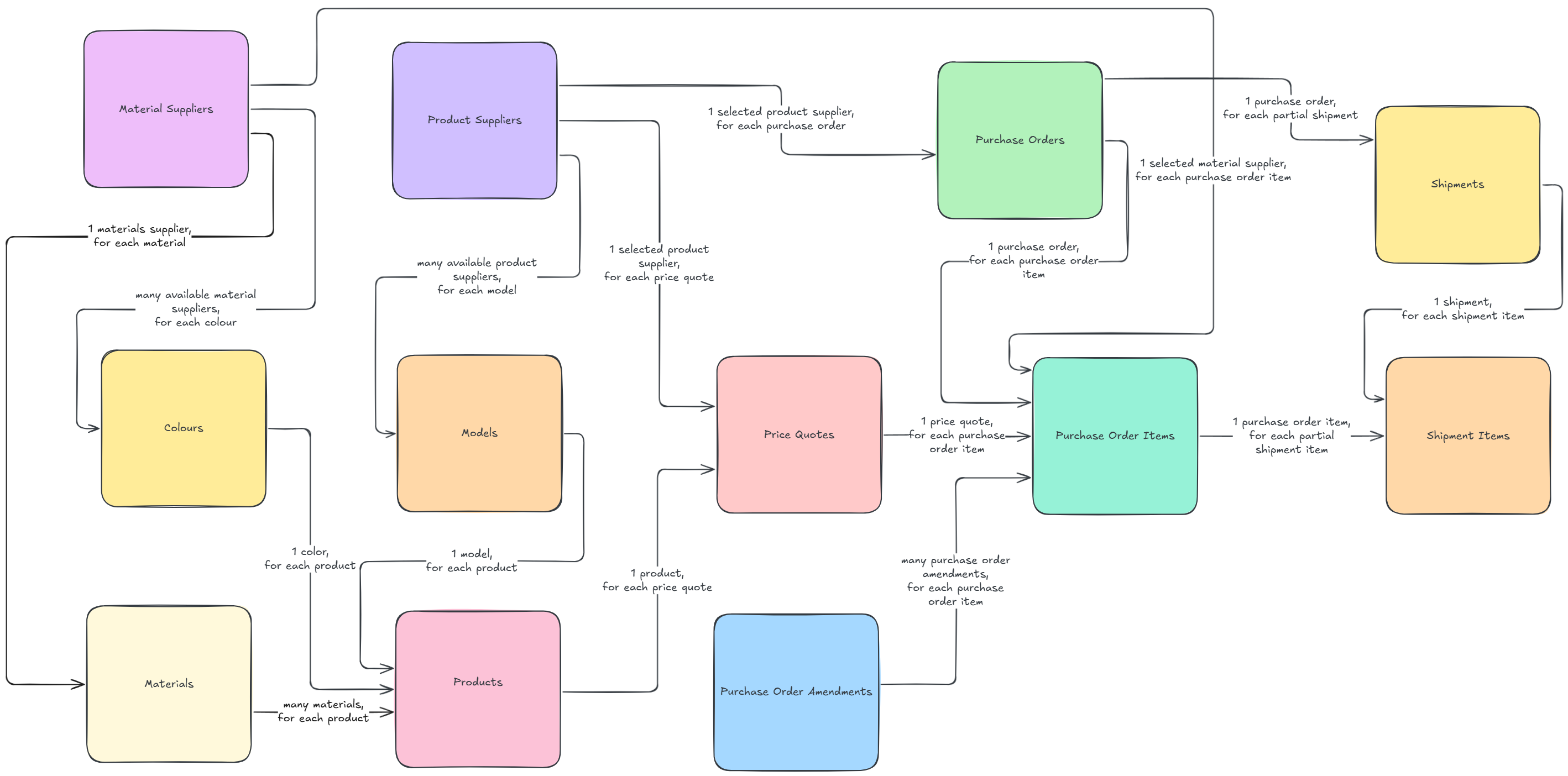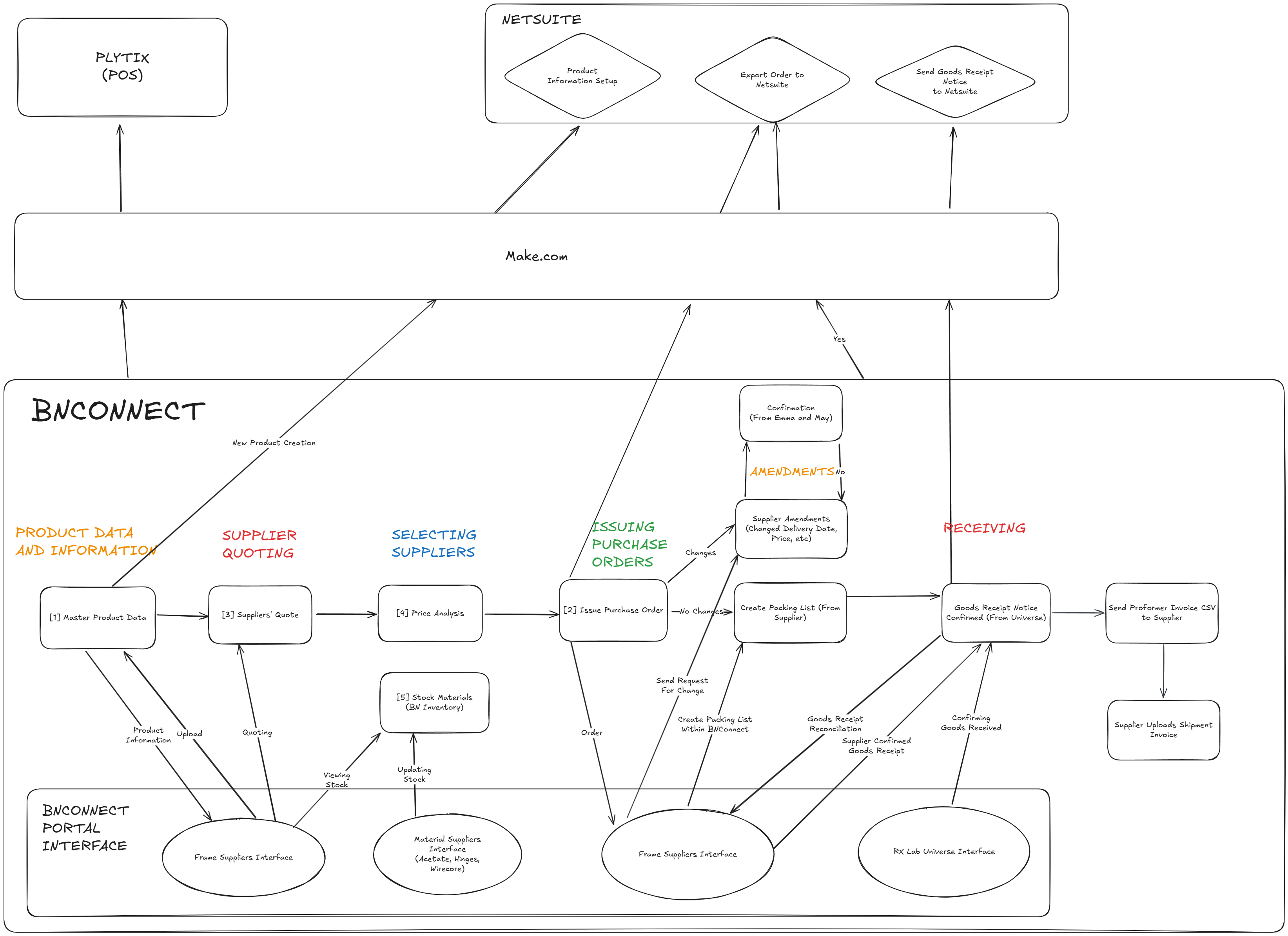How I Built a Lightweight ERP for Bailey Nelson Using Airtable and Make.com
Intro
Bailey Nelson, an eyewear retailer operating across multiple countries, came to me with a problem: their systems weren't talking to each other.
They were scaling quickly, with NetSuite handling finance, POS systems in stores, and a patchwork of spreadsheets and emails filling the gaps. Off-the-shelf ERP solutions were too rigid, too slow to implement, or simply overkill for their needs.
So I built a custom, lightweight ERP - using Airtable as the central hub, Make.com for integrations, and AI tools to automate various tasks. It was fast to deploy, easy for teams to use, and flexible enough to grow with the business.
The Data Schema
Creating a product used to involve checking multiple spreadsheets to find a barcode, making sure it wasn't already used, and manually linking the right colour, model, and supplier.
Now, it's all handled in one place. The system generates a barcode automatically, checks for duplicates, and sets everything up with a single click.
Comparing supplier prices was also a challenge. Quotes were scattered across emails or spreadsheets, and there was no clear history.
With the new setup, every price quote is tracked in the system. The team can see current and past prices, compare across suppliers, and make faster, more informed decisions.
Tracking orders and shipments is now much easier too. Before, the team had to email suppliers for updates, and things would often get lost.
Now, suppliers can update their orders directly through the system, including delay requests, changes, and shipment status.
Some suppliers can even update their stock levels, so the team knows exactly what's available before placing an order.
System Workflow
To connect everything behind the scenes, I built a custom workflow using Airtable, Make.com, NetSuite, and the existing POS system.
Airtable acts as the source of truth. When a product or order is created, it formats the data into a NetSuite compatible payload, using custom logic written in JavaScript. That payload is passed to Make.com, which handles the integration.
Make.com makes an authenticated REST API call to NetSuite. If something goes wrong, like a validation error or failed request, the system feeds that back into Airtable so the team knows exactly what happened and can fix it quickly.
The POS system works a bit differently. We export CSV files on a schedule through an SFTP connection. The POS then pulls in just the columns it needs to keep its own systems up to date.
This setup gave Bailey Nelson a reliable way to sync all core systems without needing to rebuild anything, and kept the team fully in control of their data.

